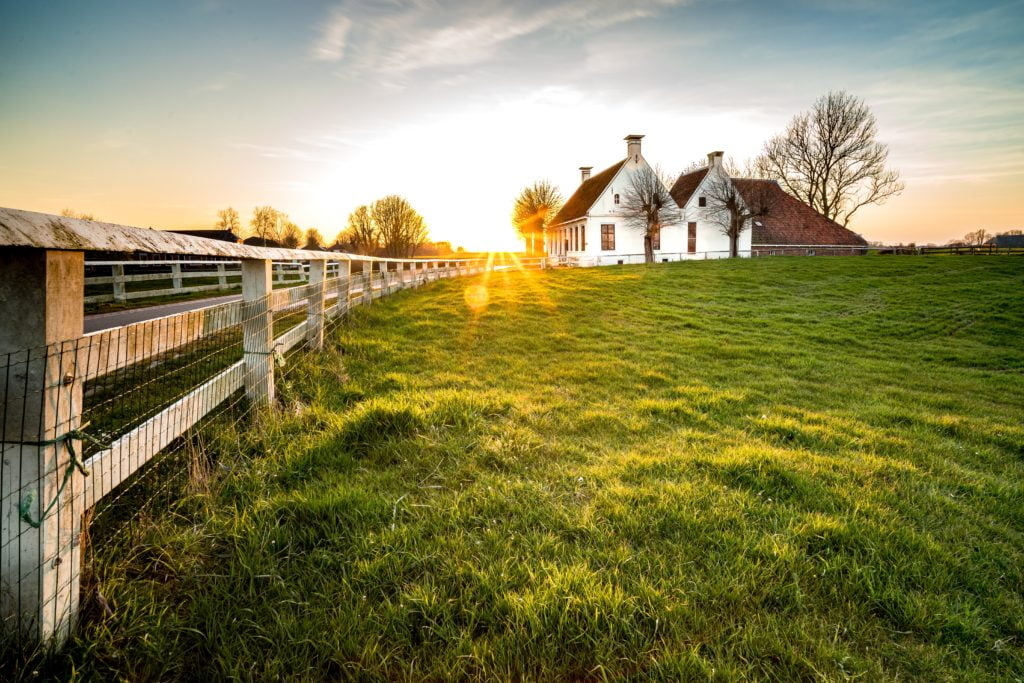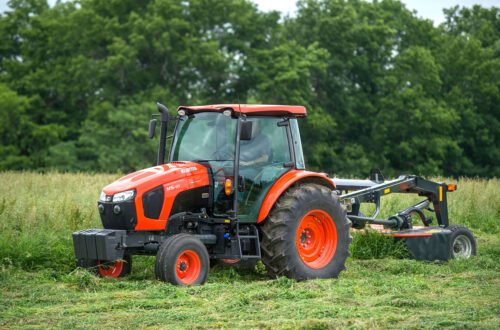10 Steps to Living Off of the Grid
There was a time, not too long ago, when every home had a garden, and people raised their own chickens and pigs. They canned their own fruits and vegetables, they made their own clothes, they repaired their own appliances. They were self-sufficient. Nowadays, most people are completely reliant on the grid. They buy all their food from the grocery store, they get all their news from the TV or the Internet, and they buy all their clothing and furniture from stores like Walmart or Ikea. But what if you didn’t have to rely on the grid? What if you could live off of the land? It may sound like a difficult task, but it’s actually not that hard to do. All you need is some basic knowledge, a few supplies and follow these 10 steps to living off of the grid.

Living Off the Grid Includes a Garden
Living off the grid doesn’t just mean disconnecting from the power lines and internet. It also means embracing a self-sustainable lifestyle, which I’ve discovered is incomplete without a bountiful garden. You see, there’s something incredibly satisfying about growing your own food from tiny seeds and watching it flourish into vibrant, organic produce.
My garden isn’t just a patch of dirt with some plants; it’s my personal grocery store, providing me with all the fresh ingredients I need to whip up delicious dishes. Plus, tending to my garden has become a form of therapy for me. There’s this inexplicable joy in getting my hands dirty and watching nature work its magic right before my eyes.
But don’t be fooled by the serene image; living off the grid with a garden requires hard work and dedication. Yet, when you’re out there cultivating your own little slice of paradise, it’s hard not to feel like you’ve stumbled upon life’s best-kept secret.
Learn to Preserve Your Own Food
Sure, it might sound a bit intimidating at first, but let me tell you, there’s something immensely satisfying about stocking your pantry with homemade preserves.
One of the best things about learning to preserve food is that it allows us to capture the fleeting flavors of each season. Whether it’s turning ripe summer tomatoes into tangy salsa or pickling crisp fall cucumbers, preserving allows us to savor nature’s bounty all year round. Plus, there’s an undeniable charm in serving up a jar of homemade jam or relish – it’s an artful nod to simpler times and a delicious way to impress guests.
The beauty of preserving your own food lies in its resourcefulness. It’s not just about prolonging shelf life; it’s about creativity and ingenuity. As we strive for self-sufficiency, we’re not just preserving produce – we’re embracing a lifestyle that values sustainability and connection to the land. So grab those canning tongs and get ready to embark on this flavorful journey!
Collect Rainwater When Living Off the Grid
So, living off the grid is all about self-sufficiency, right? And what’s more self-sufficient than collecting rainwater for your needs? I mean, it’s basically nature’s way of giving you a free refill, no questions asked. It’s like having your own personal water supply straight from the sky. Plus, it saves you from lugging heavy jugs of water around – who needs that workout when you can just let the rain do its thing?
But here’s the thing: collecting rainwater isn’t just about saving money or being eco-friendly (although those are pretty sweet bonuses). It also connects you to nature in a whole new way. You start paying attention to the weather, predicting when the next rainfall will hit, and feeling grateful for every drop that lands in your collection tank. It’s like forming a partnership with Mother Nature herself – she provides the water, and we make sure to put it to good use. So yeah, collecting rainwater might seem simple on the surface, but it’s actually a pretty profound way to stay in tune with the natural world around us.
Solar Power Your off of the Grid Home
So, you’ve decided to take the plunge into off-grid living and power your home with the mighty sun? Well, buckle up, because I’m about to shed some light on why this decision is pure genius. Not only are you escaping the clutches of those pesky utility companies, but you’re also making Mother Nature do a little happy dance every time your solar panels soak up that glorious sunshine.
Living off the grid isn’t just a trendy choice; it’s a powerful statement that says, I’m taking control of my energy destiny. With solar power at your fingertips, you become the master of your own electricity kingdom. No more worrying about blackouts or sky-high bills. Plus, with advancements in solar technology, you can now harness enough energy to keep your Netflix binge sessions going strong – talk about sustainability meets entertainment! So go ahead and bask in the glow of your solar-powered paradise – it’s not just a smart move; it’s an eco-friendly flex that’ll have everyone seeing green with envy!
Use a Wood Stove For Heating and Cooking
Living off the grid has its own set of challenges, but using a wood stove for heating and cooking brings an undeniable sense of self-sufficiency and warmth. There’s something deeply satisfying about chopping your own firewood and feeling the heat radiate from the stove on a cold winter morning. Not to mention the joy of cooking a hearty meal on top of it, infusing your food with that rustic, smoky flavor that can’t be replicated by any modern appliance. It’s like connecting with our primal instincts, proving that we can thrive without relying solely on electricity or gas.
Plus, let’s not forget the cost-saving benefits – using a wood stove reduces reliance on expensive utility bills while providing reliable warmth and sustenance. And there’s an aesthetic appeal too; few things beat the cozy ambiance created by crackling flames, as well as the nostalgia associated with traditional methods of living. Yes, it takes effort to maintain and operate a wood stove effectively, but I believe it’s worth it for those seeking to embrace a simpler way of life off the grid.
Have Animals That Contribute to the Homestead
Having animals on the homestead, it’s like having your own little workforce and support system. From chickens that provide eggs to goats that keep the grass trimmed, each animal plays a vital role. It’s almost like building your own animal kingdom, but instead of a crown, I get fresh milk and wool. Living off the grid with these furry and feathered buddies brings a whole new dimension to self-sufficiency. Plus, they’re great conversation starters for visitors – who needs small talk when you can discuss the personalities of your pet pigs?
It’s not just about what these critters can give back; it’s also about the companionship they offer in this wild homesteading adventure. Watching the chickens peck around while I sip my morning coffee makes me feel surprisingly connected to nature in this modern world. And nothing beats coming home after a long day of hard work to be greeted by some enthusiastic goats looking for scratches behind their ears. They may not pay rent or do dishes, but they sure make this off-grid life a little less lonely and a lot more entertaining.
I never expected that living off the grid would mean forming such deep connections with creatures great and small. Whether it’s listening to the calming hum of bees or sharing an apple with my favorite pig, these animals have become so much more than just functional components of my homestead – they’ve become essential parts of my everyday joy and fulfillment.
Live Simply off of the Grid
So, you’re thinking of living off the grid and simplifying your life? Believe me, I’ve been there. There’s a certain allure to ditching the complexities of modern life and embracing a more straightforward way of living. But let me tell you, it’s not all sunshine and rainbows – sometimes it’s just plain hard work. I’m talking chopping wood for heat, growing your own vegetables, and hauling water from a well kind of hard work.
Yet, amidst the challenges, there’s an undeniable sense of freedom that comes with living simply. Without the distractions of technology and consumerism, you begin to appreciate the small things – like the taste of freshly picked herbs or the satisfaction of fixing something with your own two hands. Living off-grid has taught me that simplicity isn’t about deprivation; it’s about prioritizing what truly matters and finding fulfillment in unexpected places.
But hey, don’t get me wrong – this lifestyle isn’t for everyone. It takes resilience, resourcefulness, and a good dose of humor to make it work. So if you’re considering taking the plunge into off-grid living, be prepared for an adventure filled with highs and lows but ultimately rich in experience.






